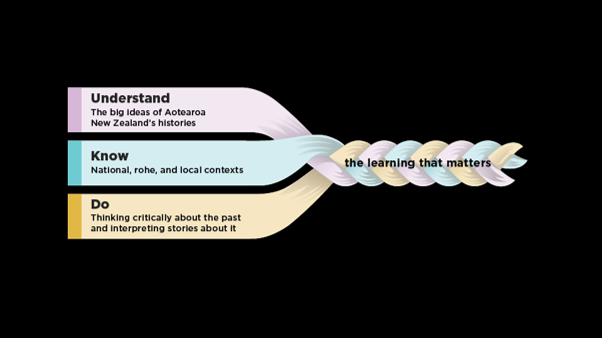Teaching Aotearoa New Zealand Histories: The Forgotten History Syllabus Claim
In September 2019 Prime Minister Jacinda Ardern announced that New Zealand history would be taught in all schools from 2022. It felt like a momentous decision given abundant evidence that most students left school having had little or no exposure to the history of their own country. Generations of New Zealanders had grown up without even a basic awareness of pivotal moments in the nation’s past, unable to understand how events like the nineteenth-century New Zealand Wars and subsequent land confiscations resonated today in myriad ways, including in the often dire socio-economic statistics of Māori communities around the country.
The Prime Minister’s announcement followed a campaign begun five years earlier by a group of students from Ōtorohanga College, a small rural secondary school in the King Country, about 20 minutes’ drive from where some of the bloodiest and most brutal battles of the 1863-64 Waikato War took place. After visiting some of these sites on a 2014 school trip, the students returned to class dismayed not to have learned any of this history before. They vowed to take action, organising a petition that was eventually signed by 13,000 people calling for a national day of commemoration for the victims of the New Zealand Wars and for this history to be taught in all schools.

Naturally, attention turned to that petition when it came to understanding the background to the September 2019 decision, which followed a long period of opposition to compulsory teaching of New Zealand history on the part of politicians and education officials. But as it turns out, there was a now little-known earlier plea for New Zealand history to be taught, again led by a school student. I interviewed the two key figures behind it in 2021 and the following is based on the transcripts on those interviews.